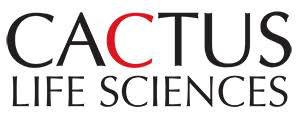Job Title: Neurological Rehabilitation Therapist (Occupational Therapist)
Job Description:
The Neurological Rehabilitation Therapist is responsible for conducting comprehensive assessments, developing personalized treatment plans, and implementing rehabilitation strategies to address cognitive, physical, sensory, and emotional challenges experienced by patients with neurological conditions. This role involves collaborating with patients, families, and multidisciplinary teams to enhance functional abilities and improve overall quality of life.
Assessment:
Goal Setting:
Treatment Planning and Implementation:
Adaptive Techniques and Equipment:
Cognitive Rehabilitation:
Sensory Integration:
Psychosocial Support:
Education and Training:
Collaboration and Multidisciplinary Teamwork:
Outcome Evaluation:
Education:
Experience:
Skills:
Equal Opportunity Employer:
We are an equal opportunity employer and encourage applicants of all backgrounds to apply. We are committed to creating an inclusive and supportive workplace for all employees and patients.










Andra Pradesh :
Anakapali | Anantapur | Bhimavaram | Chittoor | Guntur | Gurgaon | Mangalagiri | Nellore | Pydibimavaram | Tirupathi | Vijayawada | Visakhapatnam |Assam :
Dibrugarh | Diburghar | Guwahati |Bihar :
Hajipur | Patna |Chhattisgarh :
Bilaspur | Eot Municipality | Raipur |Delhi :
Delhi | India | New Delhi | PAN-India |Goa :
Goa | Panaji | Verna |Gujarat :
Ahmedabad | Ankleshwar | Baroda | Bharuch | Gandhinagar | Halol | Jhagadia | Mehsana | Tarasadi | Vadodara | Vapi |Haryana :
Ambala | Gurugram | Haryana | Hisar | Kurukshetra | Panchkula | Rohtak |Himachal Pradesh :
Baddi | Solan |India :
Siliguri |Jharkhand :
Ranchi |Karnataka :
B.G Nagara | Bangalore | Belgaum | Bengaluru | Bommasandra | Mangaluru | Mysore | Udupi |Kerala :
Kannur | Kochi | Malappuram | Thiruvananthapuram | Trivandrum |Madhya Pradesh :
Bhopal | Dewas | Gwalior | Indore | Khandwa | Khargone | Pithampur | Ujjain |Maharashtra :
Airoli | Ambernath | Amravati | Aurangabad | Dhule | Jalgaon | Kolhapur | Kurkumbh | Kurla | Mumbai | Nagpur | Nashik | Navi Mumbai | Pune | Pune city | Shirpur | Tarapur | Thane | Vikhroli |Odisha :
Bhubaneswar | Rourkela |PAN-India :
Panjab :
Pondicherry (Puducherry) :
Pondicherry (Puducherry) |Punjab :
Bathinda | Bela | Chandigarh | Moga | Mohali | Patiala | Phagwara | Rajpura |Rajasthan :
Banasthali | Bhiwadi | Jaipur | Pilani | Udaipur |Sikkim :
Rangpo |Tamil Nadu :
Annamalainagar | Chennai | Coimbatore | Erode | Madurai | Nagercoil | Ooty | Pudupakkam | Srivilliputtur | Tiruchirappalli | Trichy | Vellore |Uttar Pradesh :
Gajraula | Gautam buddha Nagar | Ghaziabad | Gorakhpur | Greater Noida | Jhansi | Lucknow | Mathura | Noida | Park City | Prayagraj | Varanasi |Uttarakhand :
Dehradun | Halifax | Nainital | Rishikesh | Roorkee |West Bengal :
Digha | Kolkata | Mukundapur |Alabama :
Birmingham |Alaska :
Anchorage | Barrow | Bethel | Juneau | Sitka | Wrangell |Albama :
Tuscaloosa |Arizona :
Chandler | Kingman | Lake Havasu City | Mesa | Peridot | Phoenix | Surprise | Tempe | Tucson | Yuma |Arkansas :
Fort Smith |California :
Adelanto | Alameda | Albion | Arcata | Atherton | Berkeley | Brisbane | Burlingame | Burney | California | Carlsbad | Crescent City | Davis | Downey | El Monte | El Segundo | Emeryville | Eureka | Fortuna | Foster City | Fremont | Glendale | Hayward | Hoopa | Irvine | La Jolla | Los Angeles | Martinez | McKinleyville | Menlo Park | Millbrae | Milpitas | Morgan Hill | Mountain View | Nevada | Novato | Oakland | Orange | Pacheco | Palo Alto | Pasadena | Pleasanton | Pomona | Redding | Redwood City | Riverside | Roseville | Sacramento | San Bernardino | San Diego | San Francisco | San Gabriel | San Jose | San Mateo | San Rafael | Santa Clara | Santa Cruz | Santa Monica | Simi Valley | Soledad | South San Francisco | St. Helena | Stanford | Stanton | Stockton | Temecula | Thousand Oaks | Valencia | Vallejo | West Sacramento | West Valley City | Whittier | Willits |Colorado :
Boulder | Denver | Westminster |Connecticut :
Bridgeport | Bristol | Enfield | Groton | Hartford | Newtown | South Windsor | Stamford | Storrs | West Hartford |D.C :
Washington |Delaware :
Wilmington |Florida :
Boca Raton | Brooksville | Clearwater | Coral Gables | Coral Springs | Daytona Beach | Gainesville | Hollywood | Jacksonville | Maitland | Miami | Naples | North Miami Beach | Orlando | Pembroke Pines | Plantation | Port St. Lucie | Rueil-Malmaison | Saint Petersburg | Stuart | Tallahassee | Tampa | West Palm Beach | Winter Haven |Georgia :
Atlanta | Augusta | Rome |Hawaii :
Hilo | Honolulu |Idaho :
Boise |Illinois :
Abbott Park | Bloomingdale | Champaign | Chicago | Deerfield | Glenview | Lake Forest | Lombard | Naperville | Norridge | Park RIdge | Round Lake |Indiana :
Bloomington | West Lafayette |Kansas :
Garden city | Kansas City | Lawrence | McPherson |Kentucky :
Edgewood | Ft MItchell | Louisville | Shelbyville |Kington :
Frank Scottile Blvd |LA :
Baton Rouge | Monroe | New Orleans |Louisiana :
Lake Charles | Shreveport |Maine :
Bangor | Brewer |Maryland :
Aberdeen | Baltimore | Bel Air | Cheverly | Columbia | Elkridge | Gaithersburg | Largo | Linthicum | Rockville | Towson | Upper Marlboro | White Plains |Massachusetts :
Andover | Billerica | Boston | Cambridge | Devens | Lexington | Massachusetts | Medford and Somerville | Rockland |Michigan :
Detroit | Houghton Lake | Macomb | Southfield |Minnesota :
Duluth | Eden Prairie | Fridley | Hibbing | Maple Grove | Minneapolis and St. Paul, Minnesota. | Minnetonka | St.Paul |Missouri :
Fulton | Milan | St. Louis |Nebraska :
Hebron | Nebraska City |Nevada :
Las Vegas | Tonopah | Tonopsh | Virginia |New Hampshire :
Lebanon | Macon | Manchester |New Jersey :
Basking Ridge | Bloomfield | Branchburg Township | Bridgewater | Brunswick | Burlington | Charlotte | Clark | Cranbury | Dunellen | East Brunswick | Edison | Fairfield | Far Hills | Flemington | Hackensack | Hopewell | Indianapolis | Jersey City | Linden | Livingston | Lyndhurst | Mahwah | Monmouth Junction | Montville | Mount Arlington | New Brunswick | Newark | Nutley | Paramus | Parsippany | Passaic | Paterson | Peapack-Gladstone | Pine Brook | Piscataway Township | Plainsboro | Princeton Junction | Rahway | Raritan | Somerset | Somerville | South Plainfield | Sparta | Summit | Titusville | Trenton | Warren Grove | West Orange | Westfield | Wharton | Whippany |New Mexico :
Albuquerque | Farmington | Santa Fe | Tucumcari |New York :
Albany | Biddle | Brooklyn | Buffalo | Hauppauge | Hawthorne | Hicksville | Ithaca | Middleburgh | Morningside Heights | New York | Pearl River | Poughkeepsie | Rensselaer | Rhinebeck | Syracuse | Utica | Watertown |North Carolina :
Concord | Lumberton | North Carolina |North Caroline :
Carolina Beach | Chapel Hills | Durham | Holly Springs | Morrisville | Philippines | Raleigh | Rocky Mount | Sanford | Scottsdale |North Dakota :
Dickinson |northeastern :
New Hampshire |Ohio :
Batavia | Blue Ash | Cincinnati | Cleveland | Columbus, | Dayton | Erie | Evendale | Franklin | Hamilton | Huber Heights | Kings Mills | Macedonia | Mason | Milford | Montgomery | Norwood | Oregoina | oxford | Waynesville |Oklahoma :
Oklahoma City |Oregon :
Bend | Coquille | Corvallis | Eugene | Florence | Grants Pass | John Day | Lake Oswego | Lakeview | Portland | Reedsport | Roseburg | Salem | Springfield | Woodburn |Pennsylvania :
Ambler | Bethlehem | Collegeville | Harrisburg | Lancaster | Marietta | Middletown | Philadelphia | Pittsburgh | Plymouth Meeting | Radnor | Sellersville | Southampton | Spring House | West Chester | Wyomissing |Portugal :
Lisbon | Oeiras | Portugal |Puerto Rico :
San Juan |Republic of Mexico :
Mexico |South Carolina :
Charleston |Tennessee :
Knoxville | Memphis | Nashville |Texas :
Abilene | Arlington | Austin | Boerne | Brenham | Bulverde | Carrollton | Cedar Hill | Corpus Christi | Corsicana | Dallas | Denton | El Paso | Fort Worth | Garland | Houston | Lakeway | Longview | Mcallen | North Richland Hills | Plano | Richardson | San Antonio | Seguin | Tyler | Waco |United states :
fairmont | Georgia | Keene | OH | United States |United States :
Hawai | kentucky | Sylmar | Woonsocket |Virginia :
Blacksburg | Charlottesville | Falls Church | Mechanicsville |Washington :
Bellevue | Bothell | Friday Harbor | Goldendale | Mount Vernon | Pullman | Seattle | Sherwood | Tacoma | Vancouver |WI :
Madison | Wausau |Wisconsin :
Appleton | Pleasant Prairie | Portage | Waukesha |Wyoming :
Big Piney | Cokeville |Baden-Wurttemberg :
Biberach an der Riß | Freiburg | Grenzach | Heidelberg | Karlsruhe | Konstanz | Stuttgart | Tubingen | Ulm |Bavaria :
Bayreuth | Erlangen | Munich | Regensburg | Wurzburg |Berlin :
Mitte |Brandenburg :
Berlin |Germany :
Germany | GErmany |Hesse :
Darmstadt | Marburg |Hessen :
Frankfurt | Harveysburg |Lower Saxony :
Gottingen | Hannover | Leipzig |Mecklenburg Vorpommern :
Rostock |Munich :
Bavaria |North Rhine Westphalia :
Aachen | Bielefeld | Bochum | Bonn | Cologne | Dortmund | Duisburg | Dusseldorf | Munster |Rhineland Palatinate :
Ingelheim am Rhein | Mainz |Rotherbaum :
Hamburg |Saarland :
Saarbrucken |Saxony Anhalt :
Halle |Schleswig Holstein :
Kiel |Belgium :
Wavre |BULGARIA :
Bulgaria |Denmark :
Copenhagen | Denmark |Europe :
France | Latvia | Lendava | Leuven | Poland | Slovenia | Spain |Finland :
Finland |Hungary :
Budapest |Istanbul :
Istanbul | Turkey |Norway :
Norway | NOrway |Romania :
Romania |Serbia :
Belgrade | Serbia |Switzerland :
Basel | Zurich |Carlow :
Carlow |Cork :
Brinny | Ringaskiddy |County Dublin :
Swords |Dún Laoghaire :
Dún Laoghaire |Meath :
Dunboyne |Republic of Ireland :
Cork | Dublin | Limerick | Waterford |Tipperary :
Ballydine |Ulster :
Donegal |China :
China | Quarry Bay |Hubei :
Wuhan |Liaoning :
Dalian |Republic of China :
Beijing |Shanghai Sai :
Shanghai Shi |Tokiyo :
Osaka | Tokyo |Zhejiang :
Hangzhou |Melbourne :
South Yarra |New South Wales :
Ballina | Sydney |Queensland :
Queensland |Remote Australia :
Remote Australia |Republic of Western Australia :
Nedlands |Capital of Netherland :
Amsterdam |Netherlands :
Netherlands |Noord Holland :
Haarlem |North Brabant :
Breda |South Holland :
Leiden |North Yorkshire :
Harrogate |Oxfordshire :
Witney |South Yorkshire :
Sheffield |United Kingdom :
England | Harlow | Leeds | London | Maidenhead | Salt Lake City | Stevenage | Stirling | United Kingdom |Buenos Aires :
Buenos Aires |Austria :
Austria |Vienna :
Vienna |Antwerp :
Heist op den Berg |Brussels :
Brussels |Flemish Brabant :
Zaventem |Bosnia and Herzegovina :
Sarajevo |Sofia City :
Sofia |Canada :
Canada |Ontario :
Renfrew | North York | Richmond Hill | Uxbridge | Mississauga |Quebec :
Montreal |Chile :
Santiago |Republic of Colombia :
Bogota |Croatia :
Croatia |Zagreb :
Zagreb |Bohemia :
Prague |Republic of Egypt :
Cairo |Estonia :
Tartu | Estonia |Harju County (Maakond) :
Tallinn |Chuuk :
North Ostrobothnia :
Oulu |Southwest Finland (Varsinais-Suomi) :
Turku |France :
Lyon | Paris |Attica :
Koropi | Athens |Greece :
Greece |East Java :
Surabaya |Jakarta :
Jakarta |Israel :
Tel Aviv | Yavne | Netanya | Be'Er Sheva | Kfar Saba |Italy :
Italy |Lombardy :
Rho |Japan :
Japan | Saitama |Tokyo :
Otemachi |Kazakhstan :
Almaty |Remote Korea :
Remote Korea |Republic of Korea :
Seoul |Kuala Lumpur :
Kuala Lumpur |Mexico :
Ciudad de México |North Island :
Auckland |Lima Region :
Lima |Cebu Province :
Cebu City |Philippines :
Manila |Mazovia :
Warsaw |Remote :
Remote - Africa | Switzerland | Remote - Middle East | Remote - Europe | Remote - South America (Latin Americal) | Remote | Remote, USA |Bucharest :
Bucharest |Makkah :
Jeddah | Khulais | Rabigh | Najran | Riyadh | King Abdullah Economic City |Nišava District :
Niš |Singapore :
Singapore |South Africa :
Midrand | South Africa |Brazil :
Sao paulo | Brazil |South America :
Peru | Argentina |Catalonia :
Barcelona |Madrid :
Madrid |Sweden :
Sweden |Taipei :
Taipei |Williamson :
Brentwood |Republic of Thailand :
Bangkok |Kyiv Oblast :
Kyiv |Dubai :
Dubai |Hà Nội :
Hanoi | Hà Nội |Ho Chi Minh :
Ho Chi Minh City |